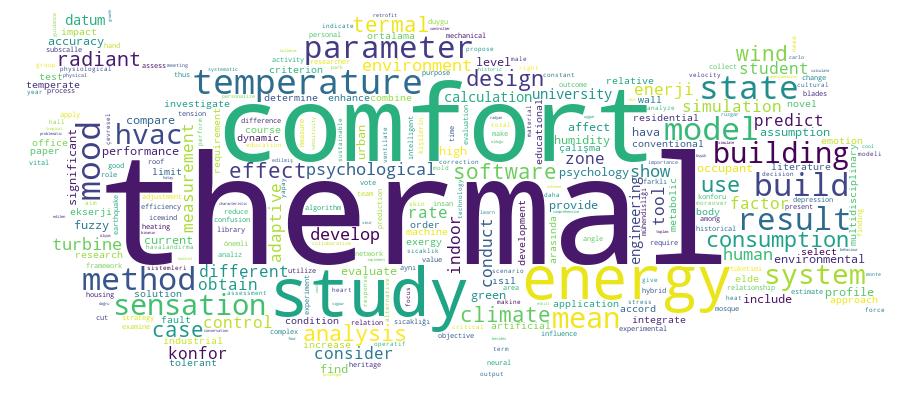Turhan, Cihan
Loading...
Profile URL
Name Variants
Cihan, Turhan
T.,Cihan
Turhan, Cihan
C., Turhan
T., Cihan
Turhan, C.
C.,Turhan
Turhan,C.
Turhan C.
T.,Cihan
Turhan, Cihan
C., Turhan
T., Cihan
Turhan, C.
C.,Turhan
Turhan,C.
Turhan C.
Job Title
Doçent Doktor
Email Address
cihan.turhan@atilim.edu.tr
Main Affiliation
Energy Systems Engineering
Status
Website
ORCID ID
Scopus Author ID
Turkish CoHE Profile ID
Google Scholar ID
WoS Researcher ID
Sustainable Development Goals
2
ZERO HUNGER

0
Research Products
11
SUSTAINABLE CITIES AND COMMUNITIES

15
Research Products
14
LIFE BELOW WATER

0
Research Products
6
CLEAN WATER AND SANITATION

0
Research Products
1
NO POVERTY

0
Research Products
5
GENDER EQUALITY

3
Research Products
9
INDUSTRY, INNOVATION AND INFRASTRUCTURE

1
Research Products
16
PEACE, JUSTICE AND STRONG INSTITUTIONS

0
Research Products
17
PARTNERSHIPS FOR THE GOALS

0
Research Products
15
LIFE ON LAND

0
Research Products
10
REDUCED INEQUALITIES

1
Research Products
7
AFFORDABLE AND CLEAN ENERGY

11
Research Products
8
DECENT WORK AND ECONOMIC GROWTH

1
Research Products
4
QUALITY EDUCATION

5
Research Products
12
RESPONSIBLE CONSUMPTION AND PRODUCTION

4
Research Products
3
GOOD HEALTH AND WELL-BEING

1
Research Products
13
CLIMATE ACTION

1
Research Products

Documents
45
Citations
727
h-index
15

Documents
40
Citations
634

Scholarly Output
47
Articles
31
Views / Downloads
248/1418
Supervised MSc Theses
7
Supervised PhD Theses
0
WoS Citation Count
478
Scopus Citation Count
551
WoS h-index
13
Scopus h-index
14
Patents
0
Projects
0
WoS Citations per Publication
10.17
Scopus Citations per Publication
11.72
Open Access Source
18
Supervised Theses
7
Google Analytics Visitor Traffic
| Journal | Count |
|---|---|
| Buildings | 4 |
| Energy and Buildings | 4 |
| Mugla Journal of Science and Technology | 2 |
| Sustainability | 2 |
| Journal of Building Engineering | 2 |
Current Page: 1 / 7
Competency Cloud


